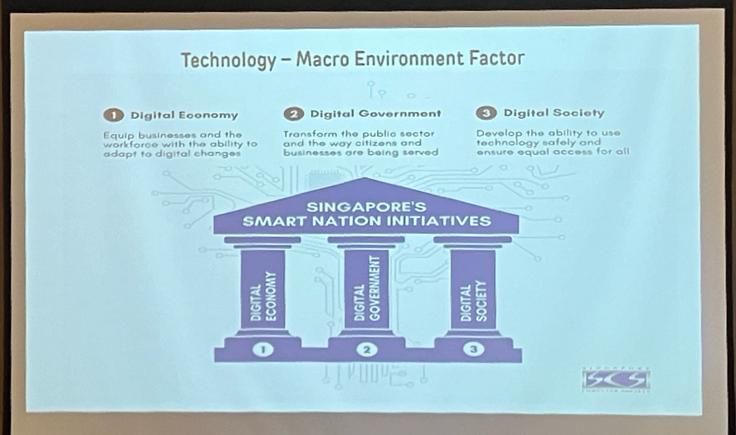Hastin Dumadi presented Singapore as a country with abundant business prospects. For instance, the Head of the Economics Department at the Embassy of the Republic of Indonesia (KBRI) in Singapore drew comparisons between the durations of performances by international bands and singers in Indonesia and Singapore, citing examples like Coldplay and Taylor Swift.
The renowned singer Taylor Swift will perform in Singapore during her 6-day album tour in the upcoming year. Beyond entertainment, Singapore stands out as a nation that has successfully hosted international sporting events, such as Formula 1.
Hastin delved into Singapore’s business landscape during a guest lecture on Integrative Business Experience I for Management students at the SBM ITB on Wednesday (22/11). A total of 120 students who had previously visited Singapore attended the lecture. During the session, Hastin explored the theme “Business Environment in Singapore and How Singapore Addresses Globalization.”
According to Hastin, demographically, Singaporean citizens constitute only 60 percent of the total population, with the remainder comprising permanent residents, students, and foreign workers. This demographic makeup suggests that many immigrants are drawn to Singapore for economic opportunities.
Singapore’s economy relies on the manufacturing, wholesale, and retail sectors, each contributing 19%. The business services sector follows closely at 15%.
Singapore is the most developed country in Southeast Asia. It is ranked third globally and first in the Asia-Pacific region for having the most competitive market by the IMD World Competitiveness Center.
This accomplishment is inseparable from the country’s vision, which aims to offer numerous opportunities, as evidenced by analyzing the business environment through internal and external factors.
Singapore’s Smart Nation initiative is geared toward creating technology-based solutions with three main pillars: Digital Economy, Digital Government, and Digital Society. The fruits of technological transformation are evident in infrastructure, such as airports, which serve as crucial links between countries and have secured the top spot as the best airport in the world for five consecutive years.
In conclusion, Singapore’s successful utilization of globalization and its establishment of the best business environment among other countries can be attributed to factors such as ease of doing business, an attractive (low) tax system, numerous grants and government initiatives, a pool of qualified workers, and a strategically advantageous location in the world trade network.






